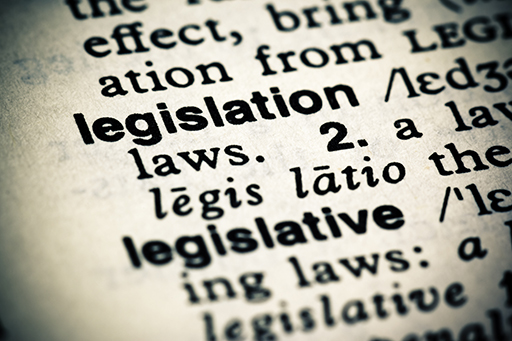5 Social work and the law
Social workers have to act within the law and can be called upon to justify their actions to courts, and in hearings and tribunals, as well as to their managers and service users. The law, depending on the context, can also define social workers’ accountability, at times framing their decision-making options in some detail.
Factual and detailed knowledge of legal provisions and options is essential, but in the practical use and implementation of the law, social workers must learn to view the legal options available through the lens of their assessment of the situations in which they are involved. This is, of course, true for other professions where law relates directly to the dynamic world of working with people, in policing or in medicine, for example. In social work, sometimes it is clear that intervention is needed, perhaps when there are serious concerns about the safety of a child or adult. More often, however, the social worker will have a number of legally viable choices about the best way forward and must work with service users and carers, exercising their professional judgement in order to decide on the best course of action.
Safeguarding
Undoubtedly, social workers need to know about the legal and practical interpretations of risk and harm and how the rights and safety of individuals may be promoted and protected. This is a core aspect of social work practice, and like many other elements in the role of a social worker, is constantly under scrutiny. It is also where accountability is frequently contested by the courts, the public, the press, and by the social work profession itself.
The term ‘safeguarding’ is used to describe aspects of the social worker’s role in protecting people from harm, and upholding their rights to be free from discrimination, neglect, abuse and other forms of harm.
Safeguarding also includes assessing and managing aspects of risk, although ‘risk’ in its broadest sense is not always harmful (think, for example, about ‘taking a risk’ in your own life, like applying for a new job, or moving home). In social work, responding to risk always involves making well-informed professional judgements, often in complex situations where people may have different understandings of what is ‘safe’ or ‘dangerous’. There are always legal and ethical tensions between people’s right to privacy and autonomy to make their own decisions about their lives, and the role of society and state in taking action to protect somebody who is at risk of harm.
Human rights, asylum and immigration
Societal attitudes shape policy development and, ultimately, the legislative process and the introduction of new laws. Tracing the development of UK equality and human rights law reveals an increasing acceptance that people have rights not to experience discrimination based on, for example, their skin colour, disability or gender.
In the case of asylum seekers, it is highly likely that all will arrive from countries or regions where the rule of law is either absent or is highly discriminatory to particular targeted social or ethnic groups. Under the 1951 Geneva Convention, asylum is protection given by a country to someone who is fleeing persecution in their country. Asylum-seekers officially become ‘refugees’ if the government of the host country accepts that they have a well-founded fear of persecution should they return home.
In the UK, matters of asylum are managed by the Home Office, and social workers generally do not have direct input into their assessment and management. However, asylum-seeking individuals and families often need support locally, especially with matters such as housing, education, and with many of the multiple problems associated with their dislocation and need to adapt as best as they can in unfamiliar social and cultural contexts. This can, for example, include assisting when there appears to be some infringement of their Human Rights under the 1998 Human Rights Act, or in the protection of their rights under the Equality Act 2010, where race, religion, and belief are protected at law. However, asylum seekers to the UK have more limited legal rights than the vast majority of UK citizens, so it is essential that social workers in this field are fully aware of the legal provisions and of their applications in context.
The law in general:
- The law indicates to social workers the nature and the extent of their powers and duties. A duty is something a local authority, for example, is obliged to do, although it may have some discretion as to how it proceeds. A ‘power’ is something that can lawfully be done, but where there is not necessarily an obligation to do so.
- The law sets out clear lines of accountability which may include references to bodies that adjudicate when necessary. The courts, for example.
- The law attempts to ensure that processes, whereby decisions are made, are fair.
- The law may help clarify ethical practice issues.
- The law through the court system makes decisions with advice from social work agencies on occasions, or ratifies decisions already made by social work agencies.
- The law provides a framework within which social workers can act as an advocate, so long as there are no conflicts of interest for the social worker or for their employing agency.
- The law can facilitate the self-empowerment of service users and their carers.

